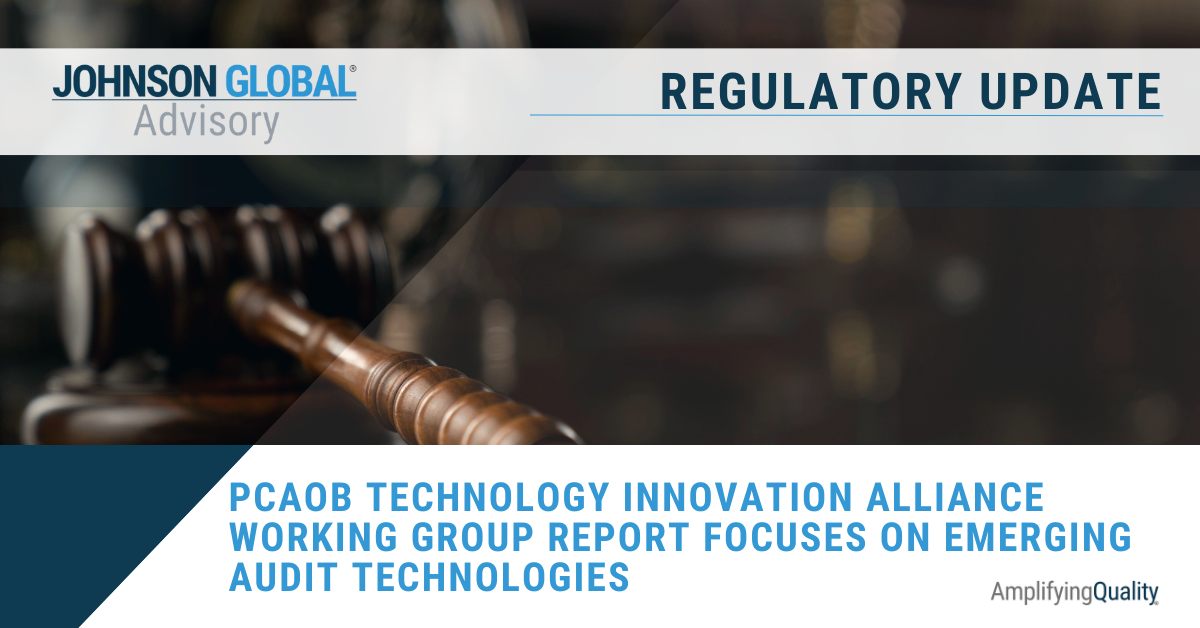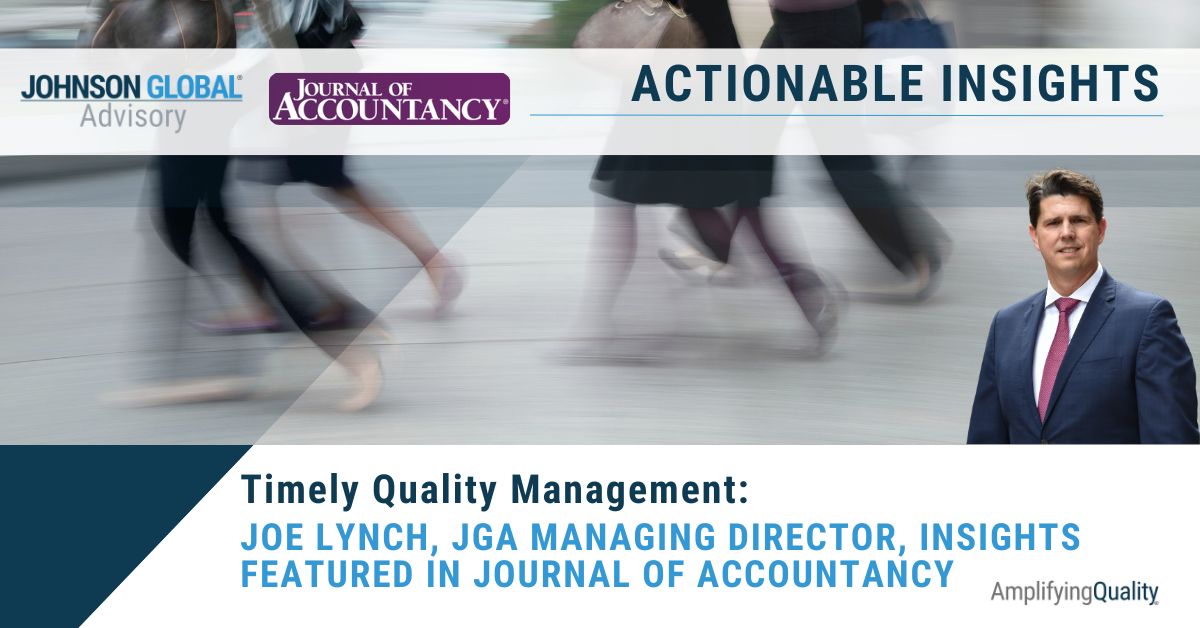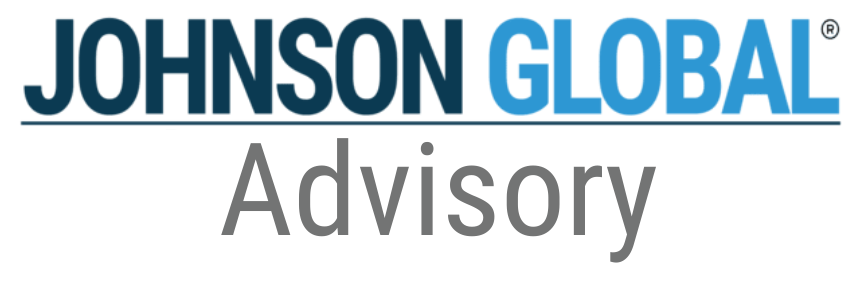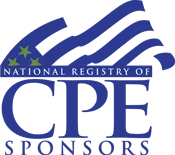Accelerating Audit Quality for Unaccelerated Filers: Changes to the Thresholds

This Spring was unlike any other and brought many changes to our world. While we are still searching for something positive, companies that no longer require an ICFR audit are enjoying a collective sigh of relief. However, before we start celebrating, I ask you to consider the importance of an effective controls environment and your role as an advocate for that, whether you are an auditor, issuer management, or an audit committee member.
In March 2020, the SEC approved changes to the classification of issuers, impacting which issuers require an auditor’s attestation over Internal Control Over Financial Reporting (“ICFR”).
The changes are effective as of January 1, 2020 and apply to both domestic and foreign issuers that file on domestic forms (e.g. 10-K, 10-Q) under the U.S. GAAP reporting framework. The most significant changes include:
- Introducing a revenue threshold of $100 million in the most recent audited fiscal year instead of solely using the market cap to trigger an ICFR audit; and
- Increasing the transition thresholds to exit accelerated filer status from $50 million to $60 million public float 1 .
As a result of the legislation, more issuers that were on the cusp of or had previously required an ICFR opinion, are no longer required to do so. In other cases, issuers that were planning on ramping up for auditors to opine on controls based on the previous rules, can table those plans.
It’s no question that this has reduced the burden on issuers that are either transitioning into or were planning for an ICFR audit requirement that now no longer need to. We’ve seen that these new rules will make more sense for issuers that had high market cap but not much by way of revenues or operations (think tech, life science, and R&D companies). It's still a relevant point for auditors, however, to be discussing ICFR with these same issuers to emphasize the importance of effective financial reporting controls and for the increasing need for effective ITGCs to carry out those controls. Furthermore, keeping the momentum of that mindset will reduce burden and improve the quality of financial reporting in the long run. As planning for calendar year-end audits is happening now, it is time to consider how these new rules can affect the auditor’s approach on the financial statement audit.
The introductory paragraphs of AS 2201, An Audit of Internal Control Over Financial Reporting that is Integrated with An Audit of Financial Statements, emphasize that “Effective internal control over financial reporting provides reasonable assurance regarding the reliability of financial reporting and the preparation of financial statements for external purposes. If one or more material weaknesses exist, the company's internal control over financial reporting cannot be considered effective.” 2 Auditors can continue to drive the conversation with client management and their audit committees on this principle, whether or not an ICFR opinion is in play. In these important discussions, particularly during the planning phase of the upcoming audits, consider these points:
Management’s responsibilities have not changed and they must still certify to the effectiveness of internal controls.
Management still needs to ensure that risks are identified, controls are designed appropriately to address those risks, and those controls are operating effectively to support management’s certification. Similarly, for auditors, other important responsibilities haven’t changed. They are still required to gain an understanding of the financial reporting process and report significant deficiencies and material weaknesses to management and the audit committee. Auditors should ensure that management’s assertion is consistent with its review of the design of the control environment. To take it a step further, I argue that auditors should be asking about management’s certification process and reporting to the audit committee whether it believes that process is sufficient for an accurate certification. Auditors can be driving these points with the audit committee to ensure there’s no incomplete or inaccurate reporting of management’s assessment.
Sound processes and controls benefit the company, regardless of whether the auditor opines on ICFR.
Before this announcement, many issuers were getting ready for the ICFR audit and should continue on that path to bolster their own internal controls. Considering how COVID-19 has accelerated the embracing of remote processes and controls and an enhanced electronic review environment, auditors should encourage issuers to maintain the inevitable trajectory that audits will become more IT and controls-focused.
Loosened reporting requirements doesn’t mean a non-controls reliance approach is the best audit approach.
Why fix what isn’t broken? Engagement teams should assess how these reduced reporting requirements affect the audit approach, including the assessment of control risk. I challenge teams to resist defaulting to a fully-substantive audit. In discussions with our clients during the planning process, we are asking engagement teams to closely coordinate with the issuer about what changes the company may be thinking about or making if they no longer need an ICFR opinion. Hopefully, controls that were effective will continue to operate. A clear example where going back to a substantive audit approach may be ineffective – or even inappropriate – is over inventory existence and completeness, especially if the company has an effective inventory cycle count program.
While this new guidance will reduce some of the overall regulatory requirements, it is important that auditors, management, and audit committees, who all share the goal of complete, accurate, and timely financial reporting, remember that sound controls facilitate that goal. As busy season planning begins, and changes are contemplated, take a step back to reinforce the principles that haven’t changed.
1
https://www.sec.gov/corpfin/secg-accelerated-filer-and-large-accelerated-filer-definitions
2 https://pcaobus.org/Standards/Auditing/Pages/AS2201.aspx
Jackson Johnson is president of Johnson Global Accountancy, a public accounting and consulting firm with clients throughout the world. He works directly with PCAOB-registered accounting firms and other firms to help them identify, develop, and implement opportunities to improve audit quality. Jackson also works with public and private companies on various technical accounting and transactional matters. His experience includes nearly six years with the PCAOB, where he worked with small and medium-sized accounting firms throughout the world, including foreign affiliates of large international accounting firms, in the areas of firm quality control and ICFR audits of financial statements. Prior to the PCAOB, Johnson worked with public and private clients in a variety of industries at Grant Thornton LLP in Boston, Los Angeles, and Hong Kong.
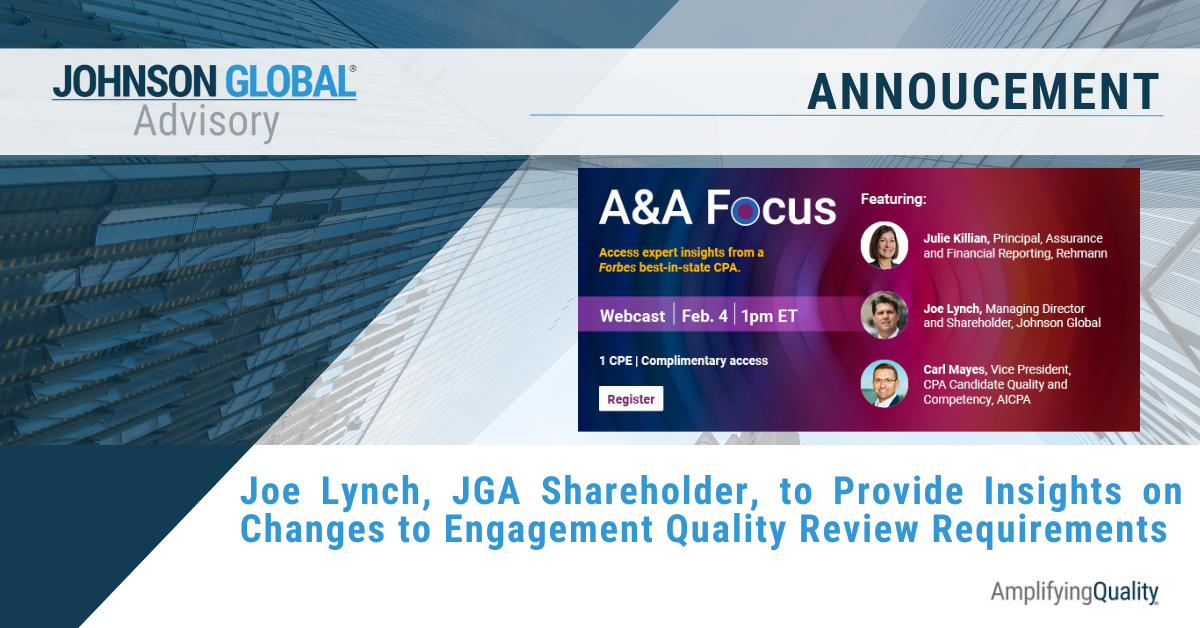
Joe Lynch, JGA Shareholder, to Provide Insights on Changes to Engagement Quality Review Requirements







